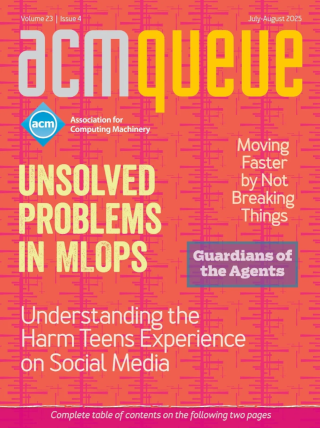
National Internet Defense - Small States on the Skirmish Line:
Attacks in Estonia and Georgia highlight key vulnerabilities in national Internet infrastructure.
Despite the global and borderless nature of the Internet’s underlying protocols and driving philosophy, there are significant ways in which it remains substantively territorial. Nations have policies and laws that govern and attempt to defend "their Internet". This is far less palpable than a nation’s physical territory or even than "its air" or "its water". Cyberspace is still a much wilder frontier, hard to define and measure. Where its effects are noted and measurable, all too often they are hard to attribute to responsible parties.
Finding Usability Bugs with Automated Tests:
Automated usability tests can be valuable companions to in-person tests.
Ideally, all software should be easy to use and accessible for a wide range of people; however, even software that appears to be modern and intuitive often falls short of the most basic usability and accessibility goals. Why does this happen? One reason is that sometimes our designs look appealing so we skip the step of testing their usability and accessibility; all in the interest of speed, reducing costs, and competitive advantage.
System Administration Soft Skills:
How can system administrators reduce stress and conflict in the workplace?
System administration can be both stressful and rewarding. Stress generally comes from outside factors such as conflict between SAs (system administrators) and their colleagues, a lack of resources, a high-interrupt environment, conflicting priorities, and SAs being held responsible for failures outside their control. What can SAs and their managers do to alleviate the stress? There are some well-known interpersonal and time-management techniques that can help, but these can be forgotten in times of crisis or just through force of habit. The purpose of this article is to restate these maxims and remind readers of these important soft skills, particularly as they apply to SAs.
Testable System Administration:
Models of indeterminism are changing IT management.
The methods of system administration have changed little in the past 20 years. While core IT technologies have improved in a multitude of ways, for many if not most organizations system administration is still based on production-line build logistics (aka provisioning) and reactive incident handling. As we progress into an information age, humans will need to work less like the machines they use and embrace knowledge-based approaches. That means exploiting simple (hands-free) automation that leaves us unencumbered to discover patterns and make decisions. This goal is reachable if IT itself opens up to a core challenge of automation that is long overdue: namely, how to abandon the myth of determinism and expect the unexpected.



